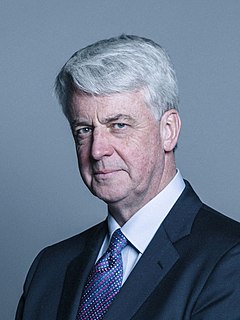Top 53 Quotes & Sayings by Andrew Lansley
Explore popular quotes and sayings by a British politician Andrew Lansley.
Last updated on April 14, 2025.
The vast majority of people who speak to me say they have had brilliant care. When they are critical, their concern tends not to be directed at the medical side but the ancillary things that surround it, such as helping patients to eat meals, cleanliness, and making sure that when patients have a problem, they are listened to.
We must not constantly talk about tackling obesity and warning people about the negative consequences of obesity. Instead we must be positive - positive about the fun and benefits to be had from healthy living, trying to get rid of people's excuses for being obese by tackling the issue in a positive way.
Safe care saves lives and saves money. Adverse events like high levels of infection, blood clots or falls in hospital, emergency readmissions and pressure sores cost the NHS billions of pounds every year. There is a serious human cost, too, with patients ending up injured, or even dead. Most are avoidable with the right care.
Tackling the environment should not be a licence to lecture people, because they have no excuse not to exercise, or eat their fruit and vegetables. Nannying - at least among adults - is likely to be counterproductive. Providing information is empowering; lecturing people is not. So, no excuses, no nannying.
Look back to 1948 when the British Medical Association denounced Aneurin Bevan as 'a would-be Führer' for wanting them to join a National Health Service. And Bevan himself described the BMA as 'politically poisoned people'. A survey at the time showed only 10 per cent of doctors backed the plans ... But where would we be today if my predecessors had caved in?


















